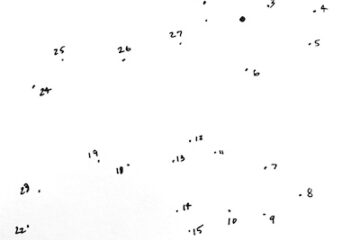Why I stopped journaling… and why I started again
You can’t throw a pen across a café without hitting some wellness guru expounding on the benefits of journaling. They’re not wrong, exactly. But as with any good thing, too much of it—or doing it the wrong way—can do more harm than good.
The benefits of writing in a journal are well documented. Some of those benefits are even backed by research and evidence. People say journaling can reduce anxiety and stress, help focus your thoughts, regulate your emotions, build self-awareness, even help with physical healing.

Why I started
I carried a journal with me for decades, pulling it out on the train during my commute, on airplanes during business trips, or in coffee shops. I did the usual journal things—reflected on my day, wrote down the things that worried me, put my dreams and hopes onto paper.
I also used my journal as a way of developing and exploring ideas and plots for novels, composing poems, and even thinking out project plans for work. The act of scratching the pen on the paper seemed to spur my creativity and, well… it felt therapeutic.
Until it didn’t.
Why I stopped journaling
There was a point, about ten years ago, when I would journal as a way to process feelings. In the mornings before work, on the train or in a coffee shop, I’d write it all down in order to release the negativity I was carrying and clear my mind for the day.
At first, it helped. Journaling was like a deep breath—I could let the feelings flow with the ink onto the paper, then set them aside and feel free of them for a while.
But over time I came to realize that I kept “releasing” the same feelings onto the page every day. I wasn’t making any progress. In fact, just the opposite: Journaling had become a way for me to keep those negative feelings fresh and present.
Rather than moving through and beyond the negativity, I kept driving myself back to it through what had become more habit than practice.
Breaking the cycle
Once I realized that, it wasn’t hard to break the cycle. I simply stopped journaling for six months.
When I returned to it, I was much more self-aware and healthy about my approach. I found I had a lot less to write when I didn’t let myself go into a rumination spiral. It felt good to let my natural positivity return to the page.
My journal became, once again, a trigger for my creativity. An almost meditative place I could go to think more deeply, to explore my thoughts and feelings in a healthy way.
Processing through poetry
Since the pandemic started, I’ve focused a lot more on writing poetry. It was just my pandemic thing… some people baked sourdough. Some started podcasts.
I wrote poetry.
This year I am writing one poem a week, inspired by a photo prompt provided each week by my co-author. We intend to publish the collection sometime after the new year, with all 52 weeks from 2022.
I’ve found that when I have a particularly powerful emotion I need to process, writing a poem is much more effective for me than journaling. I find that in my journal, I tend to hold the feeling up, examine it from the outside, observing and rationalizing about it.
But in my poems, I grab hold of the raw feeling and all that it engenders, and I envision a fictionalized manifestation. I then work on describing that, and in order to do so, I have to dig deep into its essence and find the powerful words that bring the feeling to life.
And I know I’ve succeeded when I step back from the poem and feel the weight of the emotion has left me. These are the poems I find most powerful when I read them weeks or months later.
This week’s poem
This week I wrote the poem below. It’s still relatively raw and needs some editing, but it helped me process something that I’ve been working through recently. I would love your comments, thoughts, and reactions in the comments (or by email).

FAITHLESS
blood rises to the top
effervescent
reflecting and refracting
through the fracturing ice
contriving a monochrome rainbow
of crimson, magenta, rose
oozing upward
driven by a feverish delusion
and when false words of forgiveness
have been cast to the floor
and skitter away into the dark places
like cockroaches fleeing the light
you will drift discarded and disowned
with only your malformed righteousness
your simmering misunderstood guilt
and the silent knowledge that
when all this has ended
and you face death’s bleak eternity
then, in the final reckoning,
you will see that
blood rises to the top



1 Comment
Build your resilience with these three simple tips · July 4, 2023 at 7:15 pm
[…] you are perpetually negative, your daily reflections may turn into unhealthy rumination. To quote the Indigo Girls, darkness has a hunger that’s insatiable. If you are toxically […]